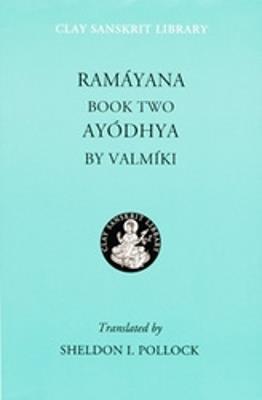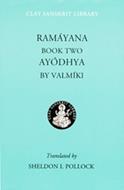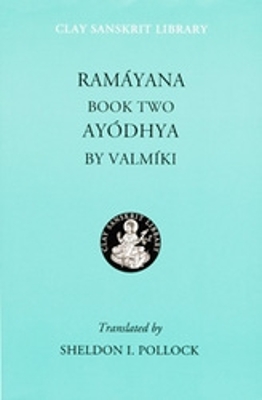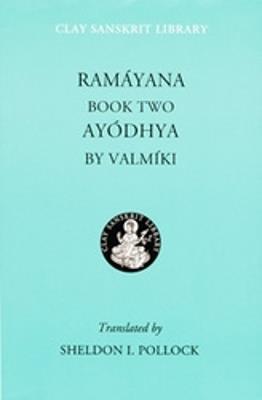Ramayana Book Two: Ayodhya
The king decides to abdicate in favor of Rama; but just as the celebrations reach their climax, a court intrigue forces Rama and Sita into fourteen years banishment; they dutifully accept their fate, and go off to the jungle. The other brothers refuse to benefit from his misfortune, which leaves nobody to run the city; eventually one of them is persuaded to act as regent, but only consents to do so on condition that he lives outside the city and acts in Rama’s name. “Ayódhya” is Book Two of Valmíki’s national Indian epic, The Ramáyana. The young hero Rama sets out willingly from the capital with wife and brother for a fourteen-year banishment, which will entail great suffering and further difficult choices in the books ahead. Of the seven books of this great Sanskrit epic, "Ayódhya" is the most human, and it remains one of the best introductions to the social and political values of traditional India. Co-published by New York University Press and the JJC Foundation For more on this title and other titles in the Clay Sanskrit series, please visit http://www.claysanskritlibrary.org
-
Autore:
-
Traduttore:
-
Editore:
-
Collana:Clay Sanskrit Library
-
Anno:2005
-
Rilegatura:Hardback
Le schede prodotto sono aggiornate in conformità al Regolamento UE 988/2023. Laddove ci fossero taluni dati non disponibili per ragioni indipendenti da Feltrinelli, vi informiamo che stiamo compiendo ogni ragionevole sforzo per inserirli. Vi invitiamo a controllare periodicamente il sito www.lafeltrinelli.it per eventuali novità e aggiornamenti.
Per le vendite di prodotti da terze parti, ciascun venditore si assume la piena e diretta responsabilità per la commercializzazione del prodotto e per la sua conformità al Regolamento UE 988/2023, nonché alle normative nazionali ed europee vigenti.
Per informazioni sulla sicurezza dei prodotti, contattare productsafety@feltrinelli.it




